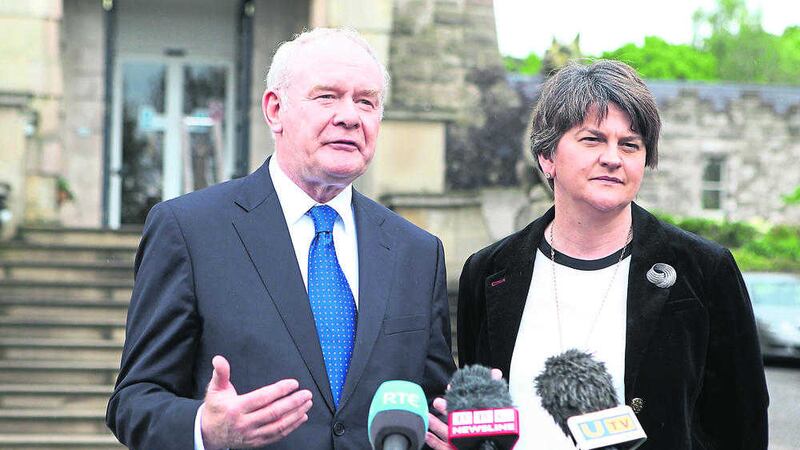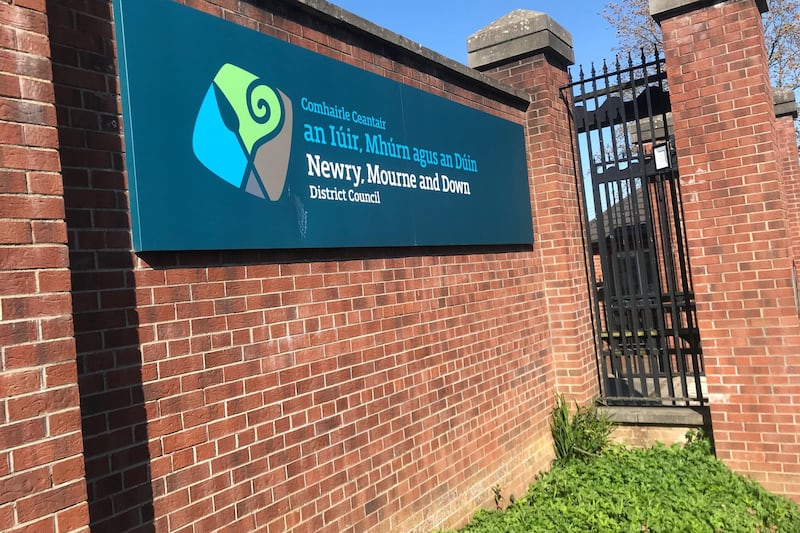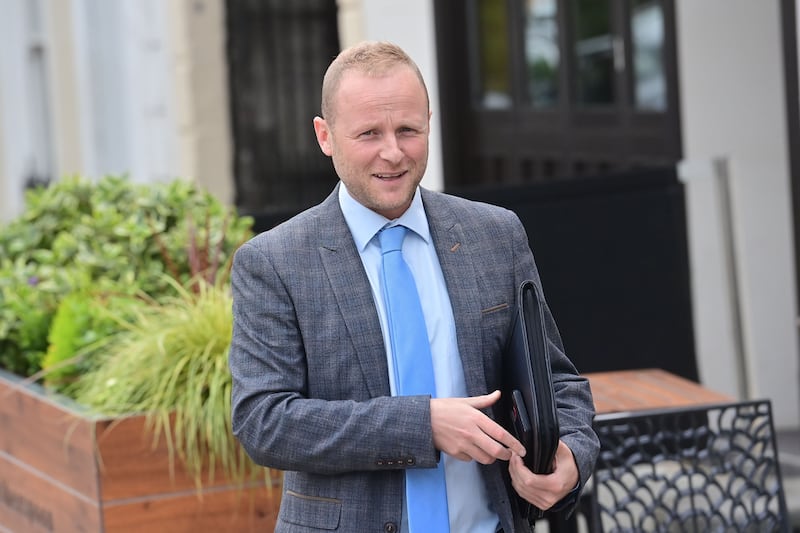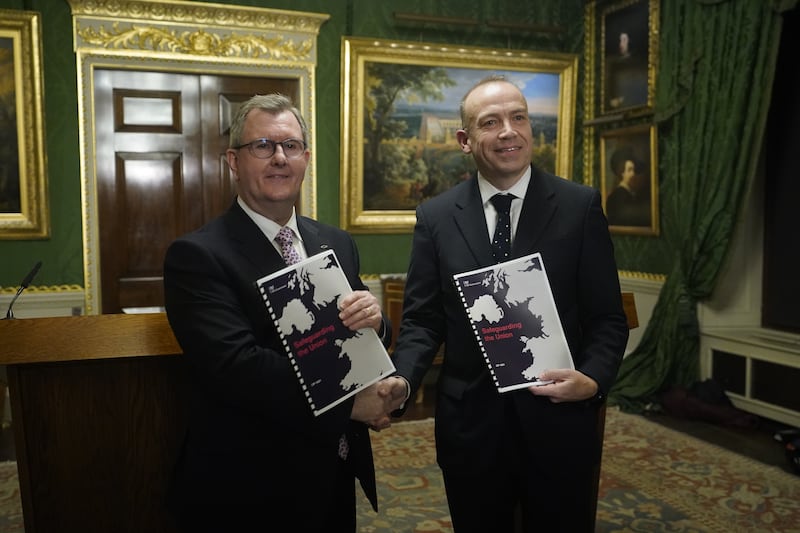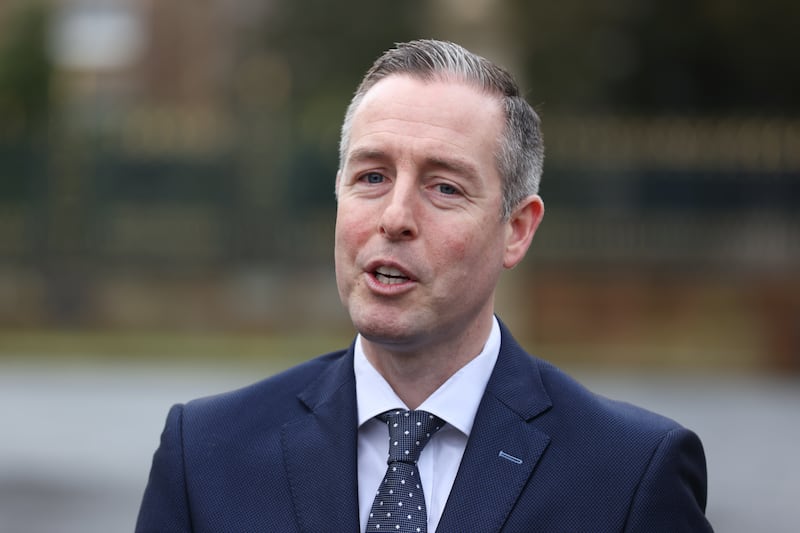WOULDN’T you know it, opposition parties are like Translink buses you wait and wait and then they come in twos.
So now the SDLP has followed the UUP onto the opposition benches at Stormont. They are going to need a much bigger naughty corner to accommodate all the dissenting voices in this next assembly.
And hot on the heels of the SDLP decision the Alliance party followed suit when the DUP and Sinn Féin gave their demands for an equal playing field short shift at Stormont Castle.
Alliance hasn’t quite said they are going for the opposition benches but it’s clear that the big two merely want them for fig leaf cover and not as a partner in government.
A few things have been startling about all of this, not least of which has been the length of time it has taken for the penny to drop with the SDLP.
Apart from that it’s the reaction of the DUP and more strikingly Sinn Féin to the moves to opt out of government.
Both Sinn Féin and the DUP have very healthy mandates and the electorate endorsed both. They have – as they are never short of reminding us – a mandate to govern.
So what’s the real issue if two smaller parties decide that the best way to have an accountable government is not from the wholly inconsistent position of criticising from within but to opt for the more honest position of official opposition?
One problem may lie in an issue particular to Sinn Féin. Sinn Féin quickly ruled itself out of any government role in the Republic and from the day after the Irish election results opted to go into opposition.
Ruling itself out of government in the south meant that their attacks on the SDLP for doing the same in the north sound lame.
Now that Sinn Féin find themselves wholly responsible for the tough decisions of government in the north – along with the more conservative and business savvy DUP, its likely that the brickbats that they will be throwing at the very shaky new Fine Gael rainbow coalition in the Republic will be the very same brickbats they will be trying to duck and dive in Stormont when hurled by the SDLP.
This means that any inconsistencies are likely to highlighted at every turn by the media and political opposition parties in both jurisdictions. Power it seems comes at a price.
Sinn Féin will struggle to get an emboldened DUP to take seriously the cross-border bodies, which are already languishing in the bottom draw of DUP ministerial desks.
Legacy issues and the thorny question of the security forces role in the dirty war will strain any potential DUP/SF love in.
It was not wise of the deputy first minister to come out with the first minister and declare: “We are in control.”
One suspects he meant we can deliver government by the deadline but it sounded arrogant.
Similarly it makes no sense for Arlene to wave the scale of the DUP victory into opposition faces. The public and the other parties know who won the election. No need to slap them with a kipper.
It’s a sign of political maturity, stability and normality that at last some of the scaffolding can now come away from the institutions set up under the Good Friday Agreement without the place collapsing.
All parties should not only recognise that but also welcome it and give themselves a pat on the back for achieving it.
Some politicians seem to think it’s an indictment of smaller parties to try to make themselves relevant against the dual monopoly of Sinn Féin and the DUP – but that’s the whole point of politics – how you make you mandate relevant.
The obvious democratic deficit of having no opposition in Northern Ireland is now over but whether those parties, which have opted for opposition, can make political capital out of it is entirely another matter.
With two sizeable mandates and no prospect of elections for at least three years both the DUP and Sinn Féin can provide for stable government in Northern Ireland.
But to be successful it has to be joined-up government – not carved up.
There are tough decisions ahead but both parties have talented people on their benches.
It is possible for both Sinn Féin and the DUP to slash the Gordian knot on the past and with victims and survivors.
From here on, its all down to leadership – either in government or in opposition.

